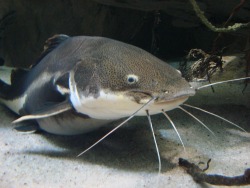
Are you familiar with catfishing? If you are a parent, then you need to be. And no, this isn’t a lesson on fishing for catfish, nor is it a recap of what I recently saw on “Duck Dynasty.”
Catfishing is when someone takes on a false identity online and ropes some unsuspecting person into a relationship. Probably the most familiar story of recent is the linebacker from the Notre Dame Fighting Irish, Manti Te’o.
It’s been all over the news. How he apparently was in a relationship with a young woman online and she died from cancer. Turns out she never existed. Everyone is still trying to figure out who the sucker was, Manti or the rest of the world.
Now if you are wondering how the term catfish came to be, it’s from a 2010 documentary by the same name. It’s the story of a guy who was duped into believing a woman online was this beautiful 19-year-old.
Turns out she was actually an older housewife, who had developed this persona because she was “bored.” Call me crazy, but I can think of a million other things to do when I’m bored.
Now these can be some pretty elaborate schemes. People who are good at catfishing play the game really well, including pictures and sometimes creating additional false characters to make the storyline sound better.
I heard of one woman who met a guy on Facebook that created an entire family and community of friends. None of them were real. But they would actually post things on his page and comment on his stuff. In fact, he had adopted several identities.
All of this to say, that our children and teens could become the victims of catfishing. This is all the more reason to be vigilant about what our children do online. They need to be aware of this very real problem.
Not only can this be humiliating to the person who finds out they’ve been tricked. But it could be dangerous if efforts are made to meet a person who isn’t really who they say are.

